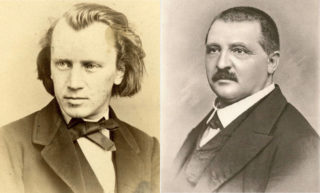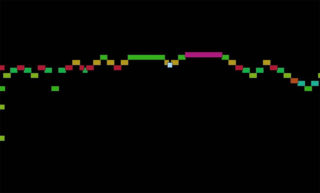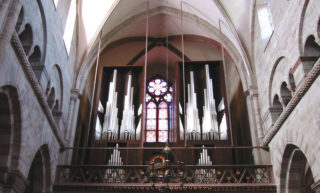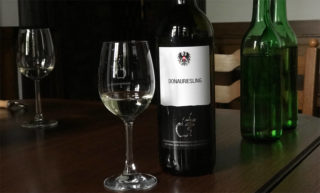Subjected to tone, fate and the good Lord
Sinfonieorchester Basel
17 and 18 June 2020
Ivor Bolton, Conductor
(Original program - Program was adjusted due to covid-19)
Anton Bruckner - Symphony 9
Sofia Gubaidulina - Offertorium
The wandering years are almost over. After three years of shuttling between the Musical Theater, Theater Basel and the Basler Münster, there are just two more concerts in the latter before the Sinfonieorchester Basel returns to its renovated and expanded home, the Stadtcasino.
Bruckner’s ninth symphony also represents the end of an era. It’s not only the end of SOB’s Bruckner cycle, but also, more importantly, it was the composer’s last work, on which he worked up until his deathbed. Nonetheless, he wasn’t able to finish it. The fourth and last movement remained incomplete. There have been numerous musicians, conductors and scientists who have made efforts to finalize the symphony, but it is the original version, with a sketchy fourth movement, that will be performed this month.
While Bruckner was in the process of composing, he may have instinctively felt his time was running out. After having dedicated his seventh symphony to King Ludwig II of Bavaria and his eighth to Emperor Franz Joseph I of Austria, he decided to dedicate his last work to the good Lord, the Majesty of Majesties himself. Superstitiously afraid his ninth symphony would incur his death – Beethoven looming large –, its genesis stretched out for almost a decade. The symphony’s third movement in particular is full of references to Bruckner’s impending demise. The melody in the tubas, for instance, two to three minutes into the movement, is meant as a farewell to life.
Just like Bruckner, Sofia Gubaidulina was and is a religiously inspired composer. She considers all her works to be religious, although she doesn’t expect her pieces ever to become a part of the Christian or Orthodox liturgy. Her compositions are her own fantasy and fulfill her own spiritual needs. The title of her violin concerto, Offertorium, refers not only to Bach’s Das Musikalisches Opfer (The Musical Offering), but also to the offertory, the part of the mass where bread and wine are placed on the altar.
In her efforts to unite emotion with intellect, Gubaidulina (born 1931 in Chistopol, Tatarstan, Russia) feels strongly connected with Bach. The opening theme of the first section, played by the orchestra, is a literal quote of the main theme of the The Musical Offering minus its last note. The theme is then reworked several times, taking off the last note in each variation until there is just one note left. This process symbolises a step-by-step sacrifice or death, followed by a resurrection as the theme recurs, in reverse, in the third section towards the end of the concerto, played by the violin this time.
The middle section is devoted to Christ’s suffering at the cross.
The concerto was composed for and premiered by the renowned violinist Gideon Kremer whose way of playing, Gubaidulina felt, subjected his ego to tone. A parallel with Christ’s resignation to his fate (crucifixion) is easily made. Following in the footsteps of Kremer to bring the evocative, powerful and profound score to life again must be a daunting task for Sebastian Bohren, the excellent Swiss soloist in this month’s concert.
These English program notes have been published in the magazine (No. 9, 2019/2020) of the Sinfonieorchester Basel.








Comments